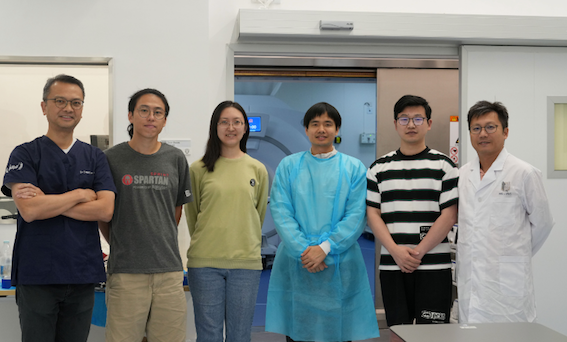
A joint multi-disciplinary team from The Chinese University of Hong Kong (CUHK)’s Faculty of Medicine (CU Medicine) and The University of Hong Kong (HKU)’s Department of Mechanical Engineering has developed an interactive, multi-stage robotic positioner for stereotactic neurosurgery, guided by intra-operative magnetic resonance imaging (MRI).
Through close collaboration between clinicians and engineers, the team proposed an interactive, multi-stage robotic positioner for cannula or needle instruments used in stereotactic neurosurgery, with the goal of providing more accurate and effective treatment of many neurological diseases, such as brain tumours and Parkinson’s disease.
The system was validated through cadaver studies and skull model testing. Initial results have laid a solid foundation for future studies that could lead towards clinical applications.
To allow the system to target accurately, the team has developed custom-made miniature wireless omni-directional tracking markers that facilitate robot registration under MRI. The entire system is fabricated with MR-safe materials, generating zero electromagnetic interference, and allowing the use of intra-op MRI guidance during robot actuation and to evaluate the interventional process.
Dr Danny Chan Tat-ming, Clinical Associate Professor (honorary) and Head, Division of Neurosurgery, Department of Surgery, CU Medicine, stated, ”The first intraoperative MRI (iMRI) system in Hong Kong will come into service in the third quarter of 2024. Two to three more iMRI systems will be set up in Hong Kong in the coming five years."




